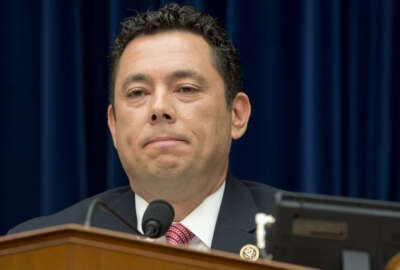
OPM addresses widespread ‘burrowing in’ concerns
The Office of Personnel Management wants to make sure political appointees hired during the current administration don't have an unfair advantage getting career...
The Office of Personnel Management wants to make sure political appointees hired during the current administration don’t have an unfair advantage getting career jobs in the next administration.
Acting OPM Director Beth Cobert put out a memo on Aug. 11 warning agency human resources departments against the hot-button topic of “burrowing in.”
According to the memo, OPM must approve any agency’s decision to hire current or recent political appointees for competitive, career senior executive or non-political excepted service positions.
“A former or recent political appointee is someone who held a political appointment covered by OPM’s policy within the previous five-year period. OPM’s oversight in this area safeguards merit system principles and assures fair and open competition free from political influence,” Cobert wrote in the memo.
Rep. Jason Chaffetz (R-Utah), chairman of the Oversight and Government Reform Committee, raised this issue in a letter to Cobert on June 30, requesting the same information about political appointees changing to career employees.
“The Office of Personnel Management and appointing agencies must ensure each conversion of a political appointee to a career position results from a fair and open competition,” Chaffetz wrote in his letter to Cobert.
Burrowing political appointees have also been a point of contention for Republican presidential candidate Donald Trump.
Reuters reported in July that Chris Christie, the governor of New Jersey and leader of Trump’s White House transition team, specifically brought up the practice of “burrowing in” during a private meeting with donors during the Republican National Convention.
Jeff Neal, the former chief human capital officer at the Department of Homeland Security and currently a senior vice president at ICF International , told Federal News Radio that Cobert’s memo broadens the scope of jobs that politicals will be scrutinized for seeking.
Sponsored Content: How secure is your network? Share your opinions in a Federal News Radio survey.
“It casts a very wide net on what they’re going to look at. Under the old memo, it said it looked at competitive and non-political excepted appointments. The new policy says they’d look at everything that’s not political or temporary. And so that probably scoops up a few more positions. … But that’s the main difference, and that’s not that big a difference. That would be a small number of jobs,” Neal said.
And for all the attention that political burrowing gets, Neal said it’s often not a problem that agencies face.
“I do think that the degree of burrowing in that’s done is usually overstated. People think that hundreds and hundreds of political appointees get career jobs in the last year of an administration, and they don’t,” he said.
Neal, who joined DHS in early 2009, said he received numerous requests from Congress to investigate burrowing, but couldn’t find any evidence that it was happening in the department.
“I couldn’t find anything fishy. he said. “I couldn’t find anything that they had done that would raise eyebrows. It was people who were applying for jobs and getting them, and the fact that they had been there as a political did give people there more exposure to them, so it probably gave them an advantage over people who hadn’t worked there as politicals, but they didn’t cook the process to hire the people.”
In the end, agency hiring personnel interviewing a current or former political hire for a career job can’t use that status to their advantage or disadvantage.
“Let’s say I’m a political appointee today, and I apply for a career position, and the agency says ‘You know, we think you’re really well qualified and you’d do a great job, but because you’re a political appointee, we’re not going to hire you. We’re going to go with someone else.’ What they’ve just told me is they’re not going to hire me based on my political affiliation or a non-merit factor,” Neal said. “You can’t cook the process to give politicals an advantage, but you also cannot refuse to hire the politicals because they’re political, or you violate a couple of prohibited personnel practices.”
The House Oversight Committee majority staff did not immediately respond to emails asking whether Chaffetz had received responses from his letters to agencies and Cobert.
Max Stier, president of the Partnership for Public Service, told Federal News Radio that agencies should follow the existing regulations that address political burrowing.
“Ensuring that our federal civil service remains a merit-based system is vital to our democracy. We ought to be vigilant in making sure that political appointees do not get inserted into the career ranks improperly. There are rules and oversight measures in place to guard against burrowing, as there should be,” Stier said in a statement Wednesday.
Copyright © 2025 Federal News Network. All rights reserved. This website is not intended for users located within the European Economic Area.
Jory Heckman is a reporter at Federal News Network covering U.S. Postal Service, IRS, big data and technology issues.
Follow @jheckmanWFED





